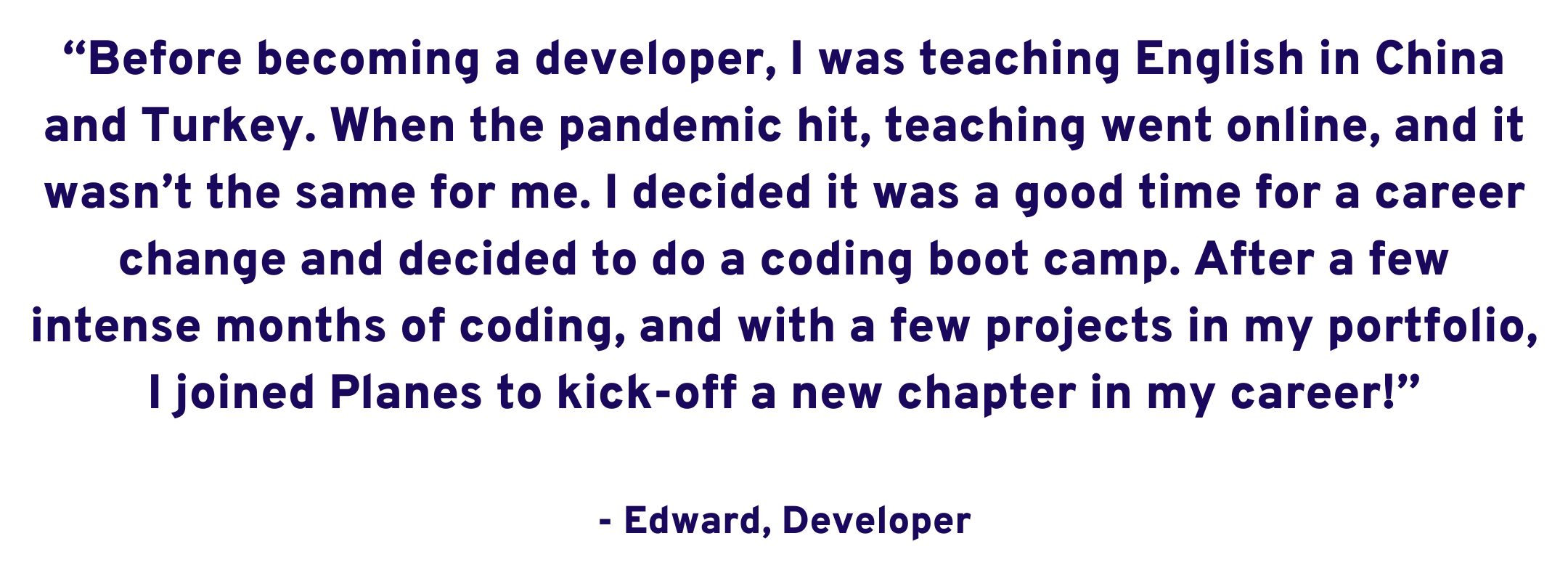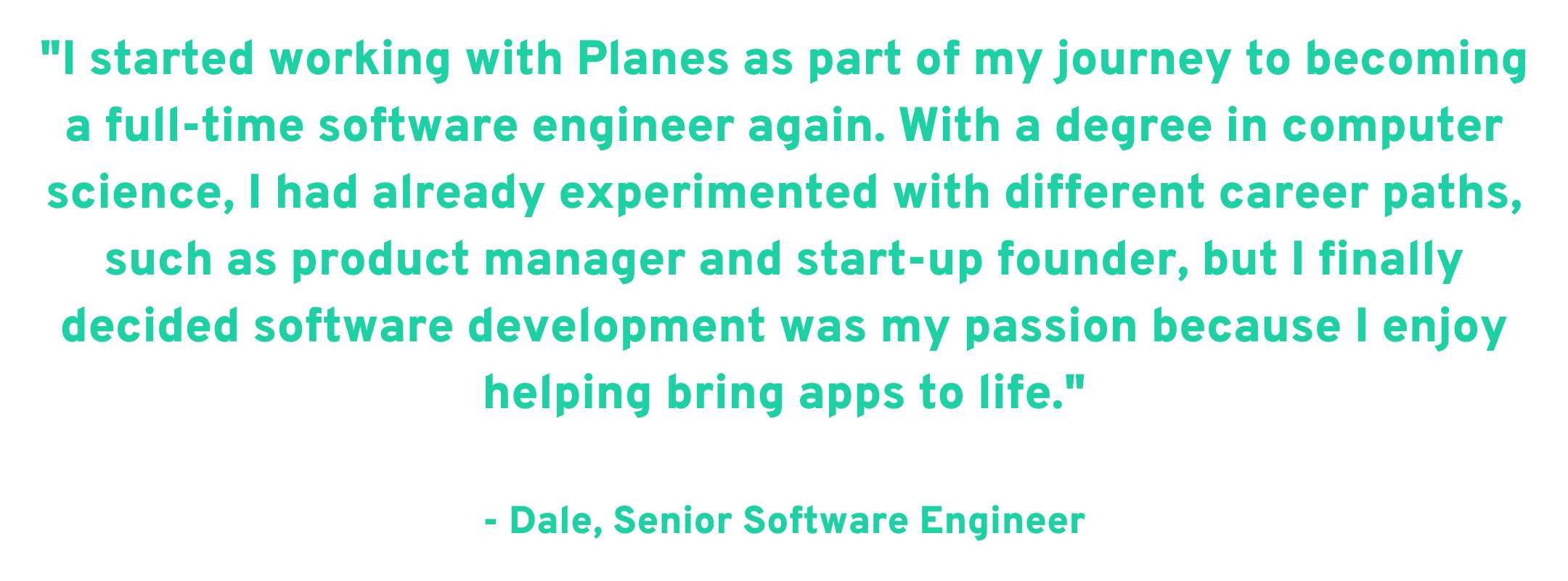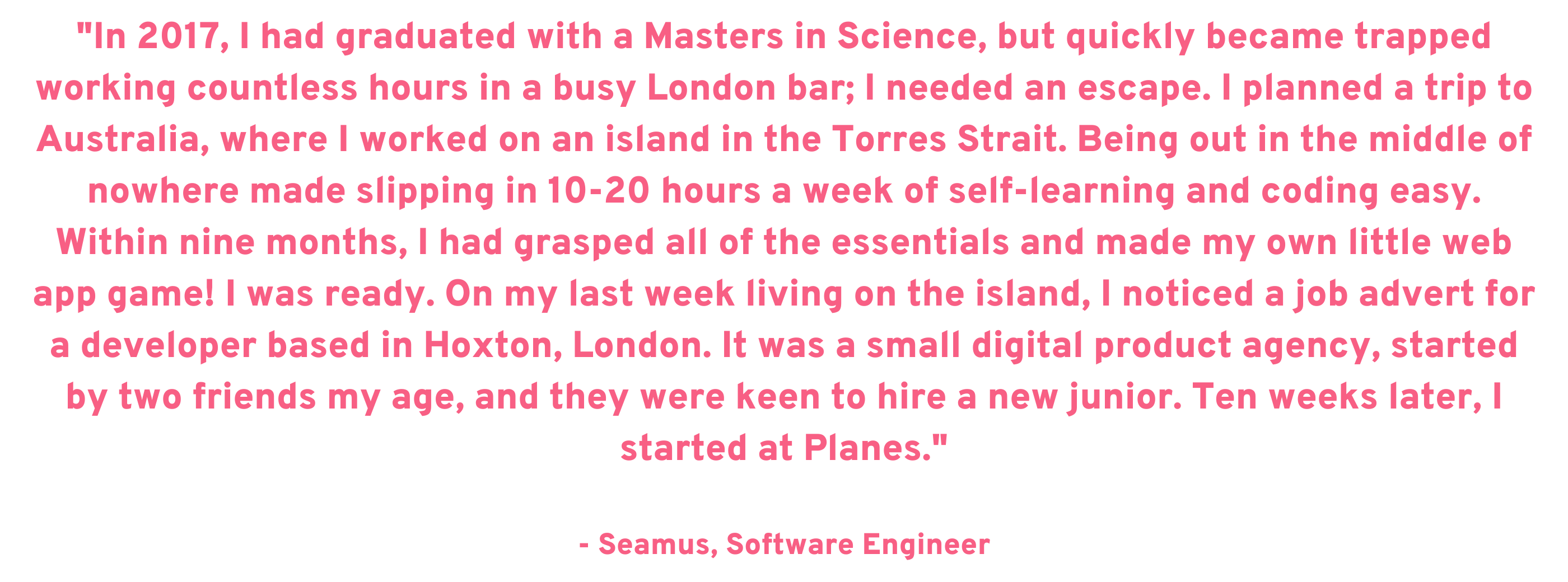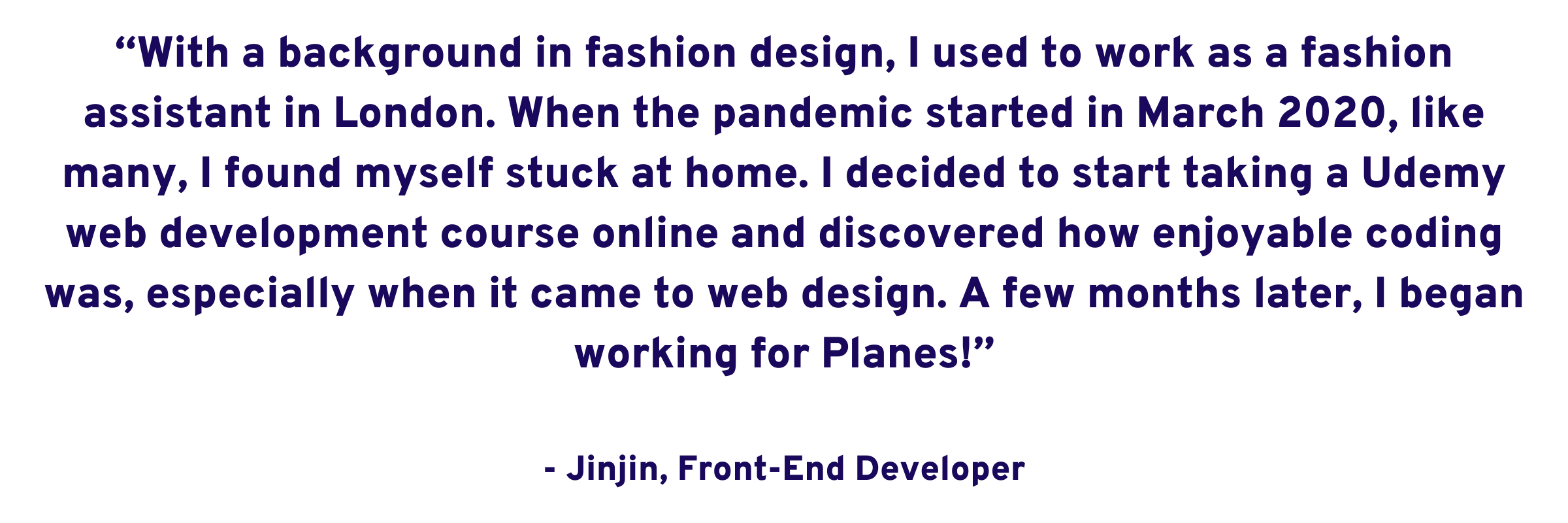Four Ways To Break Into Software Development
6th Oct 2021

A how-to guide from Planes' Development Team, written by Eddie Chan.
When the pandemic put life on pause, I’m sure I wasn’t the only one who began considering their career options. Looking around, I saw that after healthcare, the tech sector had the highest number of vacancies, what with so many businesses growing their online presence. And whilst many outside the tech industry think that the developer’s role would be boring and repetitive, this is far from true.
At Planes, our dev team gets to work on a huge variety of projects across a broad range of sectors, from finance and FMCG to education and beauty. With job stability and flexible working also par for the course, being a developer has many advantages. And, skillset aside, there are a bunch of different ways to break into the industry. Below are just some of the routes that the team at Planes took on their journeys to becoming devs.

1. Dive right in with a coding boot camp
No prior coding experience but want to dive headfirst into the deep end? Coding boot camps are an excellent way to get started. Generally three months long, they are designed to take you from zero to getting that first developer job in the shortest possible time. But watch out–boot camps can be expensive, costing anywhere from £4000 to £10,000 (or even more), not to mention the fact that you won’t have time to earn an income during that time.

2. Double down and get a degree
Studying a computer-related subject at university remains a popular way to break into the tech industry. Computer science degrees are 3-4 years long and cover in-depth theoretical material as well as hands-on coding. Compared to boot camps and self-teaching, it is generally easier to find your first job with a degree, given the huge number of graduate jobs on the market.

3. Save cash with self-teaching
There are tons of online courses available that are comparatively cheaper than boot camps to help you get started. Learning alone can get a bit tedious, but self-teaching is an excellent way to save money if you are highly motivated. It may also take longer than a boot camp to become job-ready, but you can go at the comfort of your own pace.


4. Mould your existing skills with a mentor
Perhaps, you have friends or family who are developers? Or maybe someone in your extended network has a contact? However you find them, a friend in the biz can lay out a roadmap for you to follow and help whenever you run into blocks. It’s also a great way to stay motivated and on the right track. They may even be able to put you in touch with people in the industry to help you get that first junior job!
Finding a job
Development is a broad field, ranging from front-end mobile development to data science and AI. Web development is generally the easiest field to break into, given its huge demand. Some basic requirements and musts on any portfolio include:
- Knowledge of HTML, CSS and Javascript
- Examples of previous website development
- Understanding version control, such as Github
- API competency
- Websites demonstrating the use of popular libraries such as React are a bonus
Once you have a portfolio of small jobs, you can start applying to jobs with bigger agencies and clients, all the while building up new skills. And remember, a positive attitude goes a long way, too!
Fancy a chat about what your developer career could look like at Planes, or just want some advice about how to break into the industry? I’d love to chat. Drop me a line via eddie@planes.agency.
To learn more about Planes and their approach to flexible working, check out their Company Page!